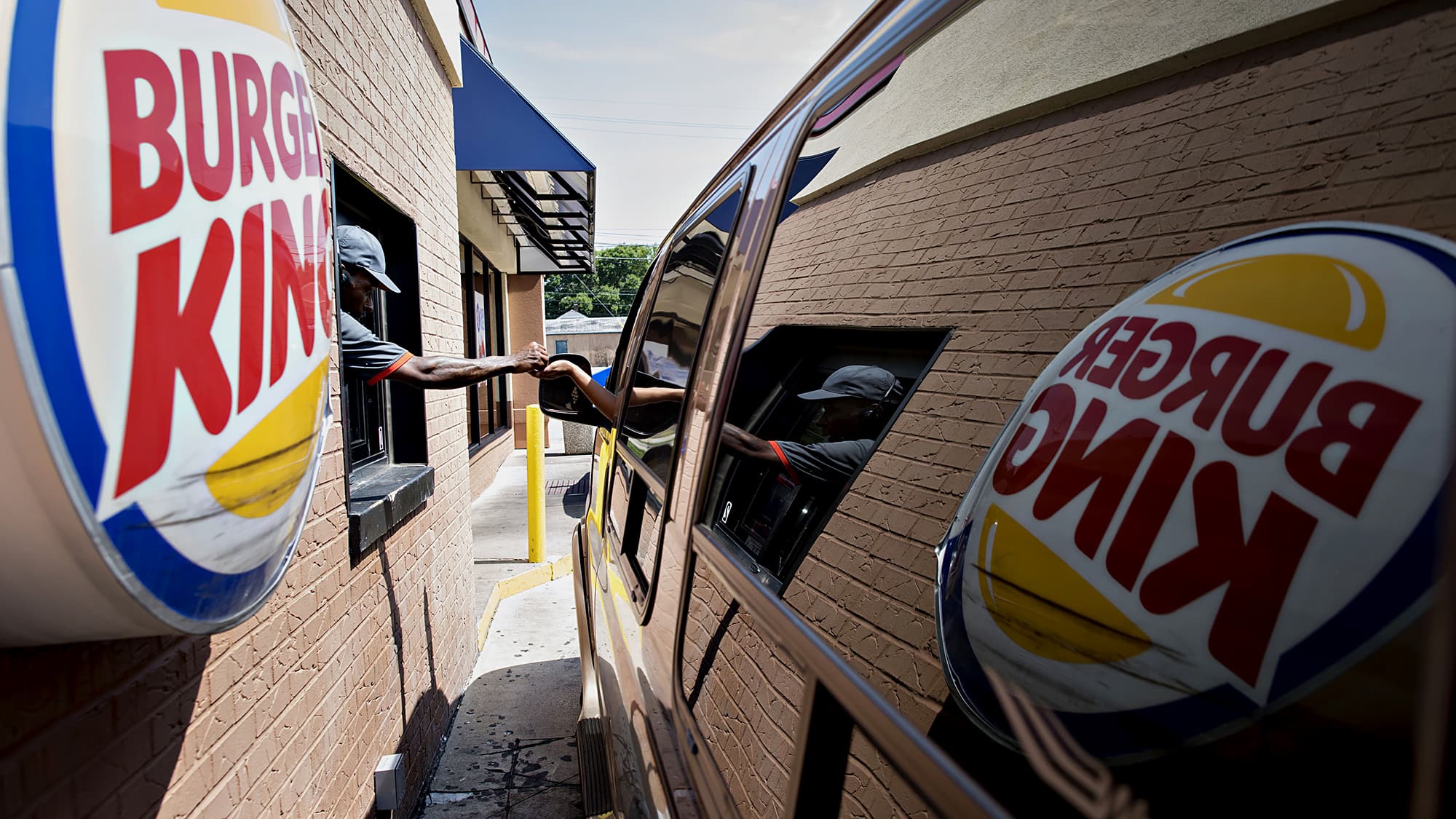
A drive-through area of a Burger King restaurant in Peoria, Ill.
Daniel Acker | Bloomberg | Getty Images
Burger King’s turnaround plan in the U.S. will include cutting menu items as it looks to speed up its drive-thru times.
The burger chain’s drive-thru times have climbed over the last nine to 12 months, according to Jose Cil, CEO of the burger chain’s parent company Restaurant Brands International.
Burger King isn’t the only fast-food chain to see its drive-thru times slow down this year. SeeLevel HX’s annual drive-thru survey found that customers spent nearly half a minute longer in the drive-thru lane compared with a year ago. The pandemic has led to a surge in drive-thru orders, even as consumers are vaccinated against Covid-19. The shift in consumer behavior has pushed restaurants to look for ways to speed up service times while the industry faces a labor crunch.
“We’re working on eliminating SKUs, simplifying processes that have become a bit too complicated and doing a better job in terms of menu design to make it easier for customers at the drive-thru, in particular, to make decisions,” Cil said at Morgan Stanley’s Global Consumer and Retail conference on Tuesday.
He did not specify which menu items could disappear but said the goal is to simplify operations.
“Given the volume increases in drive-thru, it’s a really easy win in terms of driving additional volume in our business,” Cil said. “We got too slow, and we need to address that.”
Earlier this year, Cil expressed disappointment with Burger King’s U.S. performance, pledging to accelerate growth in its home market and perform better. In the third quarter, the chain’s U.S. same-store sales shrank by 1.6%, but rivals McDonald’s and Wendy’s both posted positive domestic same-store sales growth in their latest reporting periods.
In addition to slimming its menu, Burger King is also moving away from paper coupons in favor of its loyalty program and mobile app and has reshuffled its leadership team. It tapped its former chief operating officer, Tom Curtis, as head of its Americas region in August, and its North American chief marketing officer, Ellie Doty, recently departed the chain.
Cil also addressed Restaurant Brands’ recent $1 billion purchase of sandwich chain Firehouse Subs. Unlike its past acquisitions, the deal was about growth, not cost synergies, according to Cil. The chain’s current management will stick around after the deal closes, but Restaurant Brands is looking to lend its expertise on domestic and international development and technology to help accelerate sales.
Shares of Restaurant Brands were up less than 1% in morning trading. The stock has fallen 8% this year, giving it a market value of $26 billion.




